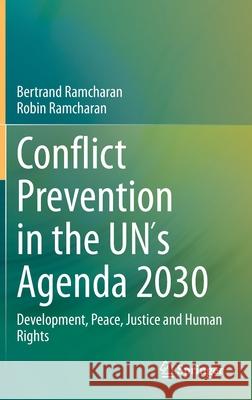Conflict Prevention in the Un´s Agenda 2030: Development, Peace, Justice and Human Rights » książka
topmenu
Conflict Prevention in the Un´s Agenda 2030: Development, Peace, Justice and Human Rights
ISBN-13: 9783030365097 / Angielski / Twarda / 2020 / 149 str.
Conflict Prevention in the Un´s Agenda 2030: Development, Peace, Justice and Human Rights
ISBN-13: 9783030365097 / Angielski / Twarda / 2020 / 149 str.
cena 523,30
(netto: 498,38 VAT: 5%)
Najniższa cena z 30 dni: 501,19
(netto: 498,38 VAT: 5%)
Najniższa cena z 30 dni: 501,19
Termin realizacji zamówienia:
ok. 16-18 dni roboczych.
ok. 16-18 dni roboczych.
Darmowa dostawa!
Kategorie:
Kategorie BISAC:
Wydawca:
Springer
Język:
Angielski
ISBN-13:
9783030365097
Rok wydania:
2020
Wydanie:
2020
Ilość stron:
149
Waga:
0.42 kg
Wymiary:
23.39 x 15.6 x 1.12
Oprawa:
Twarda
Wolumenów:
01
Dodatkowe informacje:
Bibliografia
Wydanie ilustrowane
Wydanie ilustrowane











